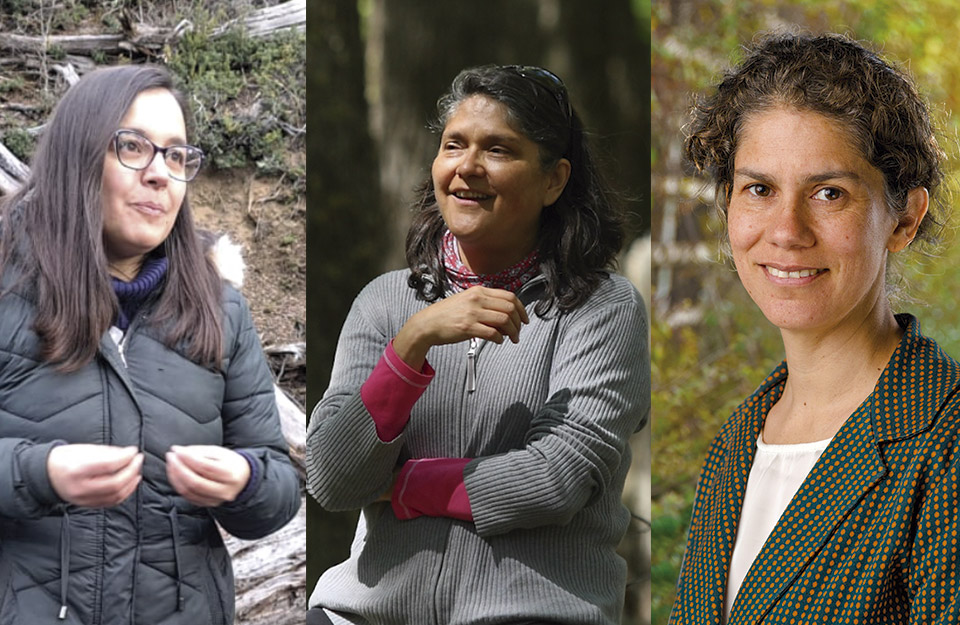
Currently, one of the greatest threats facing the planet is the climate crisis. It is estimated that, at the current rate of change, the next ten years will see a worsening of water shortages, droughts and fires, as well as the extinction of several species of plants and animals.
On the International Day against Climate Change, we made a compilation of women who, from various fields of action, are contributing to mitigate its impact, and seek answers that allow us to face it.
Anita Farfan
Anita Farfán founded Desafío Ambiente in 2017 with the objective of being able to be a strategic ally for the recycling and construction industry being one of the few women dedicated to this industry. Over the years she has managed to position Desafío Ambiente in the market through its brands Everwood and AislaPet that grant different solutions with products made from 100% single-use plastic waste, to the construction and design industry. This allowed her to be recognized in 2019 as one of the 100 Women Leaders of Chile in 2019 and to receive different recognitions in the recycling industry, the last one being the nomination to the Avonni National Innovation Awards in the Sustainable Cities category. This last period of the year is focused on expanding the company internationally to the United States, Peru and Mexico, installing its model of circular economy of plastic waste with the aim of contributing to reduce the environmental pollution that these generate in different parts of the world. Everwood transforms plastic waste into plastic wood, a material of high quality, strength and durability. In this way, plastics that could take hundreds of years to disintegrate are given a new life as furniture, flower pots and compost bins, among many other functional products. The development of plastic wood is a global environmental commitment that has an impact on the reduction of tree felling and the reuse of plastic waste.
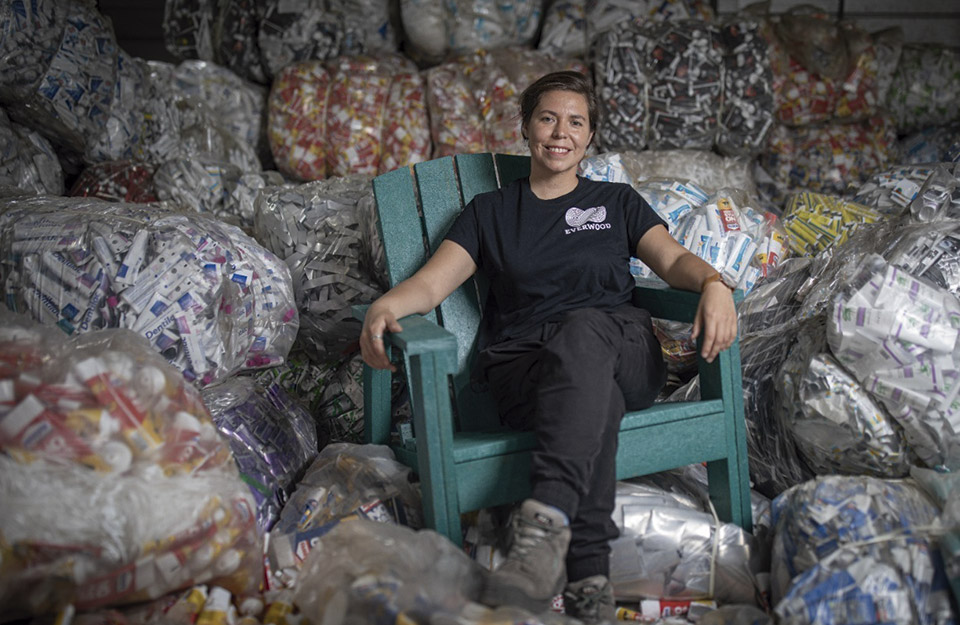
Barbara Saavedra
D. in Ecology and Evolutionary Biology, she has been the director for Chile of the Wildlife Conservation Society since 2005. She leads the Karukinka conversation project in Tierra del Fuego, a natural laboratory of 300,000 hectares of great ecological relevance for its biodiversity. About 25% of Karukinka's surface is covered by peatlands, a type of wetland capable of absorbing twice as much carbon as forests, thus becoming a key natural player in mitigating the impacts of climate change. Barbara has been a member of the National Innovation Council since 2014, led the Committee for Biodiversity and Natural Capital Management, and promotes the Natural Laboratory Magallanes and Chilean Antarctica initiative. She has dedicated her career to promote knowledge and appreciation of nature and biodiversity in different public, private, academic, social and other spaces.
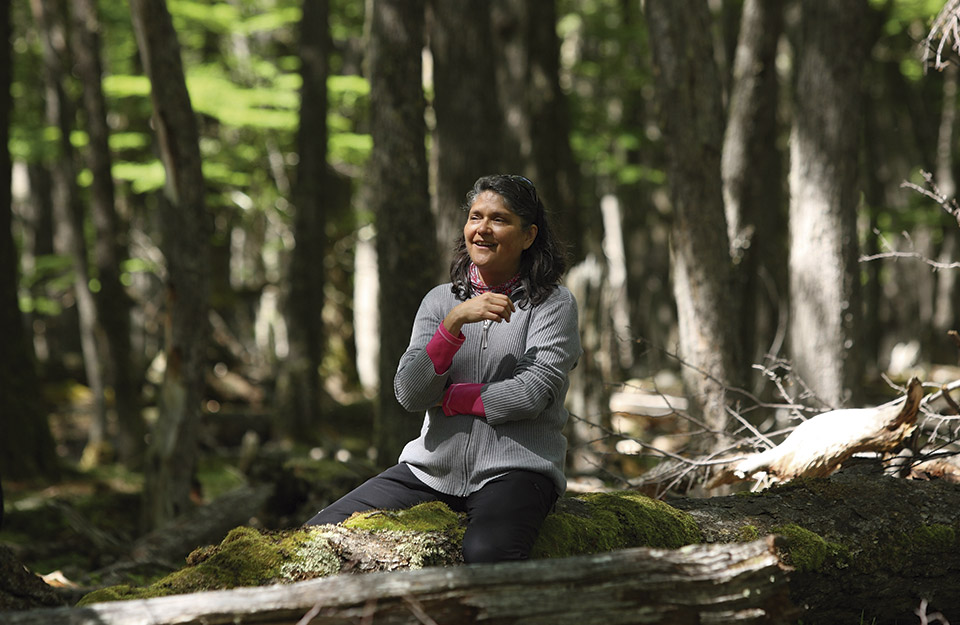
Photo credit: Juan Jaeger
Tamara Contador Mejías
Biologist, academic of the Universidad de Magallanes, principal investigator of the Cape Horn International Center for Global Climate Change Studies and Biocultural Conservation, of the Millennium Base Institute and the Millennium Invasive Nucleus. Her focus of interest lies in sub-Antarctic and Antarctic freshwater ecosystems, focusing particularly on the adaptations of aquatic insects to global warming. For 15 years he has been monitoring the Róbalo River, which flows into the Beagle Channel at Navarino Island, to study the diverse insect communities that inhabit it. This long-term work has allowed her to detect changes in the geographical distribution of some insects, such as the so-called "waterfall mosquito" that inhabits high places of the waterfall and is found at the mouth of the river, or the migration of the yellow jacket to Puerto Williams in Cape Horn. Tamara states that insects are ecotherms, that is, beings that depend on the environmental temperature to survive, so they are especially sensitive to changes in the planet's temperature.
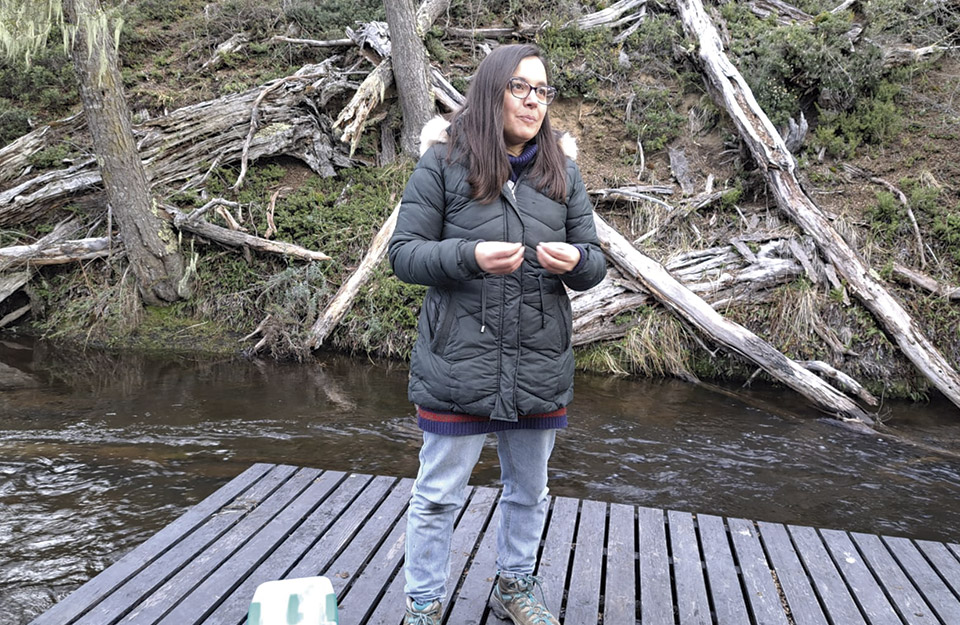
Photo credit: CHIC Communications
Maisa Rojas
A climatologist, physicist and researcher of great international relevance, Maisa Rojas is the current Minister of Environment of Chile, leading and promoting the country's environmental policies. It was recently announced that the Minister of Environment will play a key role in COP27, guiding the discussions on "Loss and Damage", one of the most relevant topics of the next Conference of the Parties of the United Nations on climate change in Egypt.
She previously served as Director of the Center for Climate Science and Resilience (CR)2 at the University of Chile, Coordinator of the Scientific Committee for COP25 of the Ministry of Science, Technology, Knowledge and Innovation, member of the Presidential Advisory Council for COP25, and coordinator of the Scientific Advisory Committee on Climate Change. She was lead author of the Fifth Assessment Report (AR5) and coordinating author of the Sixth Assessment Report (AR6) of the Intergovernmental Panel on Climate Change (IPCC). She is part of the Red de Chilen@s Creando Futuro de Imagen de Chile for her contributions to the study and actions against the climate crisis.
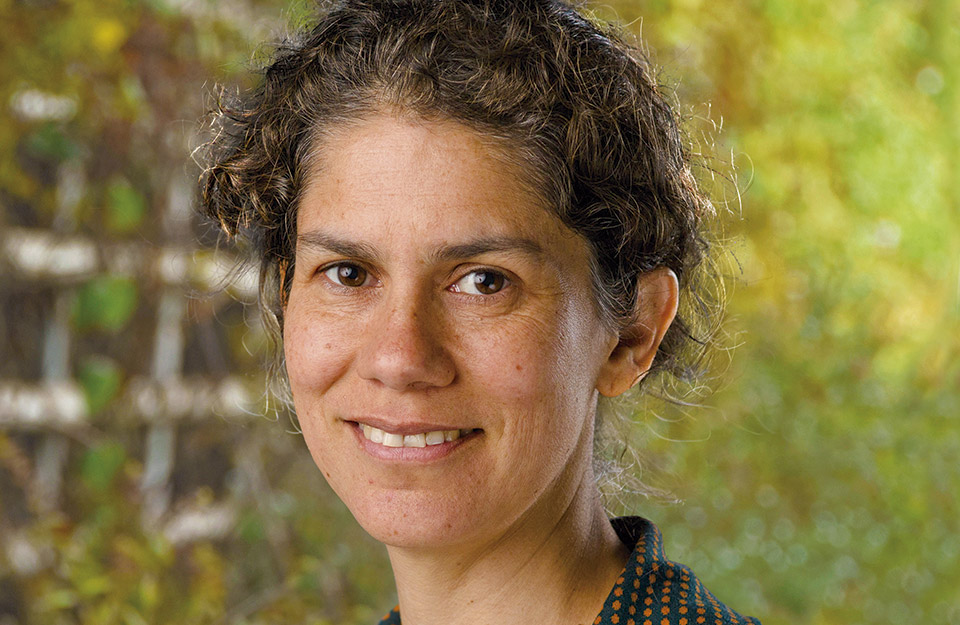
Natalia Rebolledo
Co-founder and executive director of Fundación Un alto en el desierto, a non-profit organization that seeks to support individuals, organizations and communities to develop strategies to adapt to water scarcity through environmental education, innovation and the development of low-budget water solutions. A stop in the desert prompted the first network of water harvesters and recyclers in Chile. Located in the Cerro Grande Ecological Reserve in Ovalle, Coquimbo region, they have 28 fog catchers that allow them to harvest an average of 1,537 liters of water per day, equivalent to almost 600,000 liters of water per year, one of the best fog harvesting results in South America. Natalia is a public administrator from the University of Chile and was recognized by Fundación Mujer Impacta in 2020.
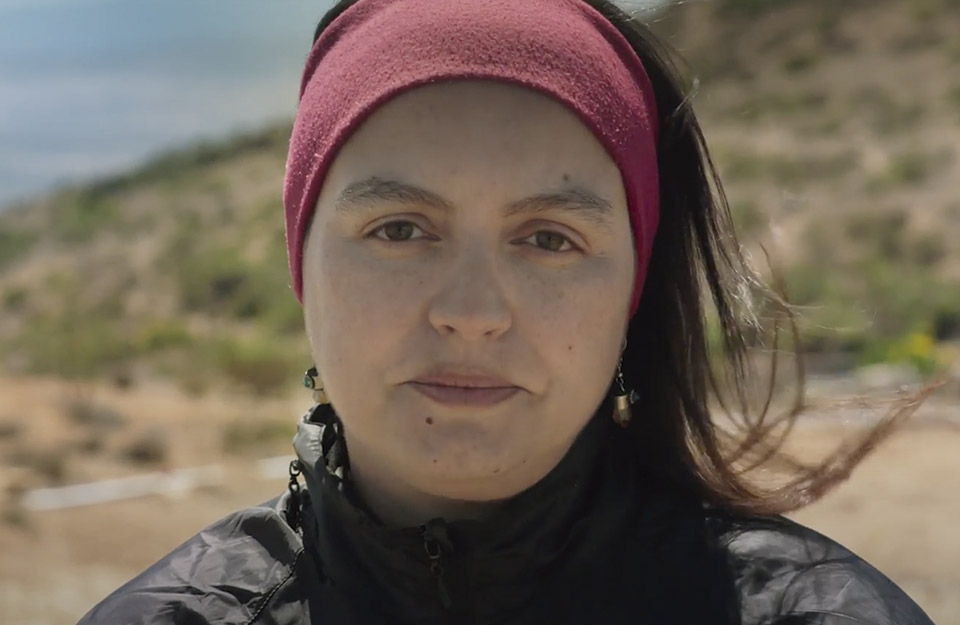
Rosario Hevia
Founder and CEO of Ecocitex, a company dedicated to eliminating textile waste by making wool from recycled clothing. For every ton of recycled clothing, they mitigate the equivalent of 5.8 tons of CO2 emissions. In 2020, the organization was selected as the initiative with the greatest impact in the region through "Emprender con Impacto", a Latin American training and acceleration program for triple impact entrepreneurship organized by Mercado Libre and Mayma. Thanks to its work, it has managed to prevent tons of clothes from ending up in landfills.




